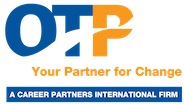Implementing an agile corporate organization
Agility is a key success factor for companies in a dynamic competitive environment. “OTP supports agile HR in changing the mindset of organizational members through Learning & Development. From profession to vocation! Above all, agile HR stands out for its ability to recognize and support employees’ special talents.” (Mark Richter, CEO OTP)
OTP’s support for agile HR, as well as for the transformation process of the organization as a whole, includes coaching, workshops, development centers and also assessments. Experience shows that the transformation of the organizational model is not only a system change, but also requires personal development on the part of all involved, as is recognized, for example, in a report on Swisscom’s experience with the “experiment” Holocracy. (Blog post University of St. Gallen)
The challenge in moving to a new holocratic form of organization is to introduce new forms of collaboration and decision-making.
It is characterized by the fact that there are no longer bosses in the traditional sense, but everyone is responsible for performing their roles themselves. There is, however, the Domain Guardian, who is responsible for ensuring that responsibilities are carried out and that the goals of the domain are achieved.
The customer request
A Swiss foundation asked us to support and accelerate the process of changing from a hierarchical organizational structure to an agile network organization – in this case a holocratic organizational structure – by conducting an employee audit. An assessment of personality, acting in group (processes) and professional competencies should be conducted for all employees.
Those who work in an agile manner need transparent rules and a clear distribution of roles, as is the case with holocracy and Scrum. Employees can take on several roles, and decision-making authority is also distributed among several people. Thus, self-management competencies as well as a changed understanding of leadership prove to be important success factors in this process.
Our assessment
The questions of the assessment were geared towards
- identifying the given competencies and strengths (professional, social) of the employees
- determining the development needs and perspectives of the employees in relation to the foundation’s objectives
- identifying the development potential of employees in relation to the role requirements in the domains.
- creating a basis for the final allocation of roles, and if necessary, a new allocation of certain roles.
In order to clearly capture the profiles of the employees with regard to these requirements, three personality-related analyses were prepared by OTP for all employees:
- – an analysis of the personality structure based on the Big Five personality model
- – an analysis of work behavior based on 32 job-related behavioral characteristics
- – an analysis of role preference in teamwork, i.e., also in the domains to be established, based on eight classic role expressions.
The results were discussed individually with one of the assessors in each case, as well as analyzed and deepened psychologically together. Subsequently, these results formed the basis for a clarification process among the employees (workshops). In these workshops, the optimal roles in the individual domains (formerly departments) were evaluated and decided by the employees according to their personality profiles and professional competencies. This procedure led to an empowerment of the assessment participants.
All employees were provided with their 3 analyses in a written report. These reports were not available for the management of the foundation. Only an (anonymized) overview of the given distribution of role characteristics of all employees was made available with the consent of all employees.
The result
The results of the assessments led to a groundbreaking reflection by the employees on their current position in the reorganization process and their preferred role in the domains. They developed action steps and plans for their further work and appearance in the upcoming domain processes. The assessments initiated the reflection process on their own self-image in the new work setting. New personal development plans were defined and the foundations were laid for empathetic interaction with each other in the domains.
The management was very satisfied with the results of the assessment project. In a follow-up step, the results of the assessments served as the basis for the domains’ development workshops, in which they clarified and defined their rules and forms of cooperation.


